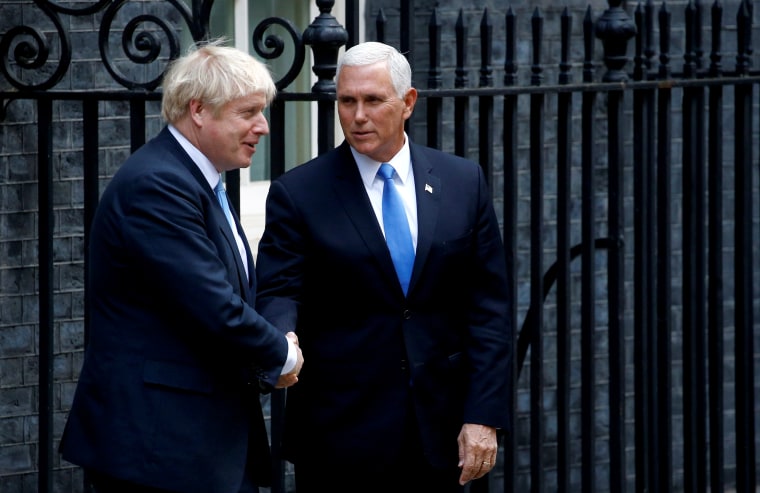The diplomatic machinations around Brexit are head-spinning, but political turmoil wouldn’t be the only result of a “hard” Brexit. Economic concerns if the United Kingdom crashes out of the European Union with no deal in place at the end of October include the impact on U.S. exports and global implications for international trade.
The U.S. runs a small trade surplus in goods with the U.K., a little less than $3 billion for the first seven months of 2019. (By way of comparison, the U.S. ran a global trade deficit in goods of roughly $500 billion in 2019 through July.)
A hard Brexit would be likely to skew that, even if the U.S. and U.K. hammered out a bilateral trade deal.
Tom Elliott, international investment strategist at the deVere Group, predicted “an effective tightening of U.S monetary conditions, through dollar appreciation.”
“The dollar is a safe-haven currency that will rise in the event of a 'no-deal' Brexit,” against the pound as well as the Euro, Elliott said, and potentially against other currencies, as well.
“If there is a no-deal Brexit, the pound is going to decline significantly in value,” said Jacob Kirkegaard, senior fellow at the Peterson Institute for International Economics. “If you’re an American producer selling to the U.K., you all of a sudden face a barrier,” he said, because U.S. goods will become more expensive.
The prospect of business interruption is another risk that could hit American companies. “If you get a no-deal Brexit, you’re going to have a severe disruption of supply chains, which means every U.S. company that has operations in the U.K. [is] going to be very significantly and adversely affected,” Kirkegaard said.
Claus Vistesen, chief Eurozone economist at Pantheon Macroeconomics, predicted that a no-deal Brexit would cost the Eurozone 0.1 to 0.2 percent in quarterly gross domestic product “solely based on the initial hit to the real economy for the seizure in real trade flows, and hit to sentiment,” he said.
“The hit to the euro area’s economy primarily would be sector-specific, though it would also show up in the macro data. Investor sentiment, industrial production and exports all likely would dive, exacerbating the slowdown in these areas that is already underway,” Vistesen said in a recent research note.
Specifically, a no-deal Brexit could do significant damage to Germany’s export-based economy, and if the E.U.’s biggest economy stalls, the ripple effects could be far-ranging.
“The German economy is a much bigger deal to the United States and the global economy at large than England is."
“Germany is on the brink of recession and it is Europe's powerhouse economy. The last thing they need is a no deal and be unable to trade effectively as they do now with the U.K., especially as the wider E.U. and global economies are slowing,” Nigel Green, founder and chief executive of deVere Group, warned in a research note.
“The German economy is a much bigger deal to the United States and the global economy at large than England is,” said Mitchell Goldberg, president of ClientFirst Strategy. “Germany is looked at as the canary in the coal mine.”
Economic experts also expressed concern that the political implications of a no-deal Brexit could spook Wall Street and drive down investor sentiment. “I look at Brexit more as a test case on the strength of democracy,” Goldberg said. “To me, that is a much bigger knock-on effect — to say that nationalism is rearing its ugly head.”
“I think the broader impact is through the … significant effect on business confidence, and concerns about the trading system on investments,” Kirkegaard said. “A no-deal Brexit will basically signal that politics has trumped economics, and you’re willing to accept significant economic losses to pursue a policy that’s nationalist and anti-globalization, and that … if they can do it in the U.K., then maybe the same is going to be even more true in the U.S.,” he said. “Businesses will be more and more concerned about the long-term future of the international trading situation.”
